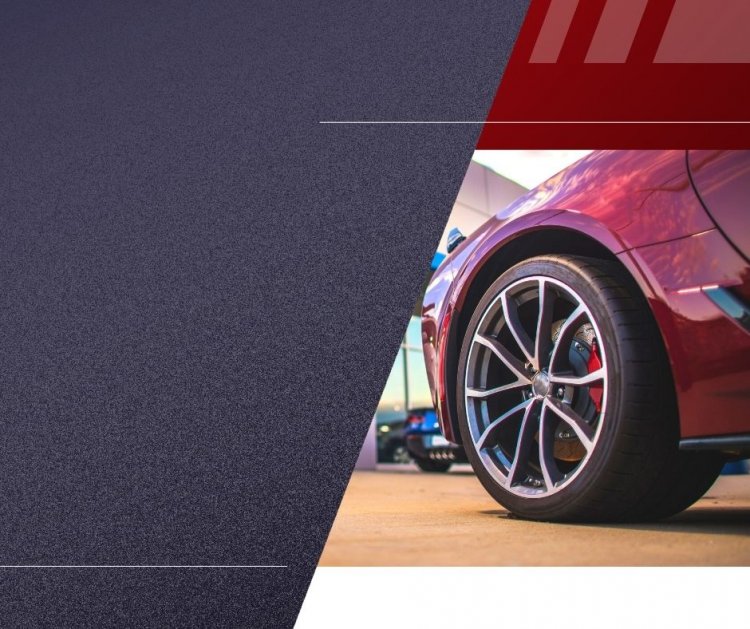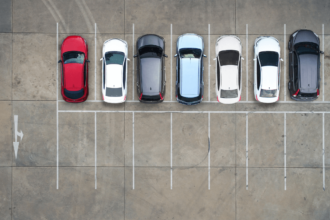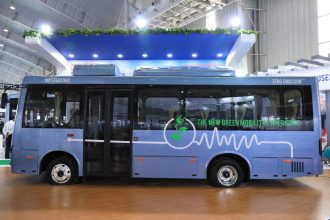Labor leader Anthony Albanese has pledged to double the government’s $250 million Future Fuels Fund to $500 million to boost electric vehicle uptake and infrastructure if it wins the federal election on May 21.
The ALP’s ‘Driving the Nation’ policy also embraces hydrogen vehicles and infrastructure, and hopes to make EVs more affordable and easier to charge, as well as reducing transport industry emissions.
Labor will introduce an electric car discount to make EVs cheaper. The proposal will exempt many EVs from import tariffs and Fringe Benefits Tax.
Under a program called ‘Hydrogen Highways’, Albanese said Labor will work with the States and Territories to create a national hydrogen refuelling network, with an investment of up to $80 million to deliver up to 16 stations on Australia’s busiest freight routes.
Labor also wants to build a national EV Charging Network, with charging stations at an average interval of 150km on major roads. The Opposition says the investment will cost $39.3 million investment, matched by motoring body the NRMA, and will involve partnerships with State, Territory and local governments, communities, industry and other state motoring clubs.
Albanese said the Liberal government went from scoffing at EVs to belatedly announced the $250 million Future Fuels Fund – but only delivered 10% of that figure. He wants to double the Commonwealth investment to $500 million, with the Commonwealth co-investing in additional EV chargers, as well as hydrogen and biofuels refuelling infrastructure..
The ALP’s ‘Driving the Nation’ policy also embraces hydrogen vehicles and infrastructure, and hopes to make EVs more affordable and easier to charge, as well as reducing transport industry emissions.
Labor will introduce an electric car discount to make EVs cheaper. The proposal will exempt many EVs from import tariffs and Fringe Benefits Tax.
Under a program called ‘Hydrogen Highways’, Albanese said Labor will work with the States and Territories to create a national hydrogen refuelling network, with an investment of up to $80 million to deliver up to 16 stations on Australia’s busiest freight routes.
Labor also wants to build a national EV Charging Network, with charging stations at an average interval of 150km on major roads. The Opposition says the investment will cost $39.3 million investment, matched by motoring body the NRMA, and will involve partnerships with State, Territory and local governments, communities, industry and other state motoring clubs.
Albanese said the Liberal government went from scoffing at EVs to belatedly announced the $250 million Future Fuels Fund – but only delivered 10% of that figure. He wants to double the Commonwealth investment to $500 million, with the Commonwealth co-investing in additional EV chargers, as well as hydrogen and biofuels refuelling infrastructure..
“The Morrison Government claimed that electric vehicles would ‘end the weekend’ and that hydrogen was ‘snake oil’,” he said.
“Only a Labor Government I lead will deliver a truly national EV Charging Network and roll out Hydrogen Highways across the country. This will be the key to Driving the Nation.”
Shadow minister for infrastructure and transport Catherine King said the future of road transport is hydrogen and electric.
“But to take advantage of the future, we have to prepare for it now. That’s why an Albanese Labor Government will work collaboratively with State and Territory Governments to build a cleaner, cheaper road network for Australian families and Australian businesses,” she said.
The Labor election pledge was welcomed by the Electric Vehicle Council. Chief executive Behyad Jafari said the proposed investment would send a potent signal to consumers and the EV industry.
“Under Labor’s commitment you could be certain that no matter where you live or where you’re going you could get there in an EV,” he said.
“We know range anxiety remains a major impediment to Australians purchasing EVs. Although much of this anxiety is misplaced, building a modern network of charging infrastructure would send a strong signal that there’s nothing to fear.”
Jafari said that despite some “very unfortunate fear mongering and a general lack of ambition at the federal level in recent years”, Australians are aware of the benefits of EVs.
“City drivers are flocking to EVs because the benefits are so clear and obvious,” he said.
“For regional drivers hesitancy is stronger, but that’s why it’s excellent to see the NRMA committing to partnering with the federal government to roll out regional charging infrastructure and make EVs an option for all Australians. If they can see the Australian government is in behind this shift we will see a rapid acceleration of progress.

















